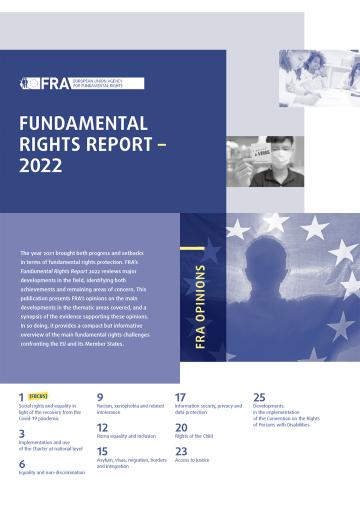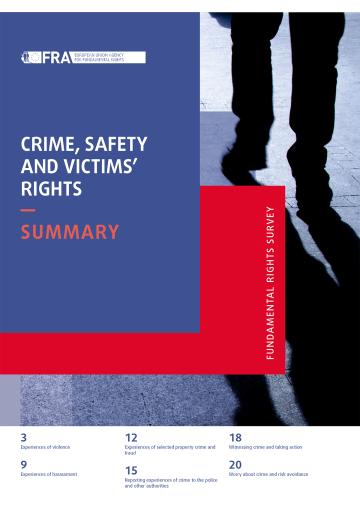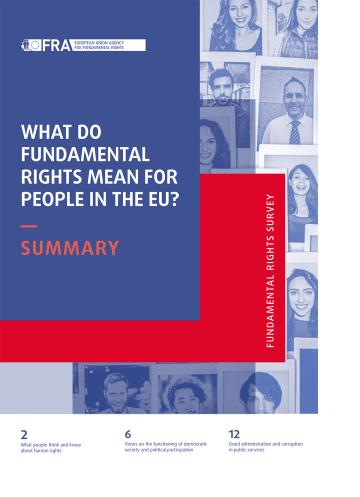Preamble
(2) Equality between women and men and non-discrimination are core values of the Union and fundamental rights enshrined, respectively, in Article 2 of the Treaty on European Union (TEU) and in Articles 21 and 23 of the Charter of Fundamental Rights of the European Union (the ‘Charter’). Violence against women and domestic violence endanger those very values and rights, undermining women and girls’ rights to equality in all areas of life and hindering their equal societal and professional participation.
(3) Violence against women and domestic violence is a violation of fundamental rights such as the right to human dignity, the right to life and integrity of the person, the prohibition of inhuman or degrading treatment or punishment, the right to respect for private and family life, the right to liberty and security, the right to the protection of personal data, the right to non-discrimination, including on the grounds of sex, and the rights of the child, as enshrined in the Charter and the United Nations Convention on the Rights of the Child.
(6) Violence against women and domestic violence can be exacerbated where it intersects with discrimination based on a combination of sex and any other ground or grounds of discrimination as referred to in Article 21 of the Charter, namely race, colour, ethnic or social origin, genetic features, language, religion or belief, political or any other opinion, membership of a national minority, property, birth, disability, age or sexual orientation (‘intersectional discrimination’). Member States should therefore pay due regard to victims affected by such intersectional discrimination by taking specific measures. Persons affected by intersectional discrimination are at a heightened risk of experiencing gender-based violence. Consequently, Member States should take that heightened level of risk into consideration when implementing the measures provided for by this Directive, especially regarding the individual assessment to identify victims’ protection needs, specialist support to victims and training and information for professionals likely to come into contact with victims.
(20) The dissemination of images, videos or other material depicting sexually explicit activities or the intimate parts of a person without that person’s consent to the public by means of ICT should not be criminalised, where such non-criminalisation is necessary to safeguard the fundamental rights protected under the Charter, in particular the freedom of expression, including the freedom to receive and impart information and ideas in an open and democratic society, as well as the freedom of the arts and sciences, including academic freedom. Moreover, the offence should not cover the handling of material by public authorities, in particular to conduct criminal proceedings or to prevent, detect or investigate crime, and Member States should be able to exempt a person from responsibility under specific circumstances, for example where telephone or internet helplines handle material in order to report an offence to authorities.
(26) The offence of cyber incitement to violence or hatred presupposes that the incitement is not expressed in a purely private context but publicly through the use of ICT. Therefore, it should require dissemination to the public, which should be understood as entailing making a given item of material which amounts to incitement to violence or hatred accessible, through ICT, to a potentially unlimited number of persons, namely making the material easily accessible to users in general, without requiring further action by the person who provided the material, irrespective of whether those persons actually access the information in question. Accordingly, where access to the material requires registration or admittance to a group of users, that information should be considered to be disseminated to the public only where users seeking to access the material are automatically registered or admitted without a human decision or without selecting to whom access is granted. In assessing whether material qualifies as amounting to incitement to hatred or violence, the competent authorities should take into account the fundamental right to freedom of expression as enshrined in Article 11 of the Charter.
(33) In the case of domestic violence and violence against women, especially where committed by close family members or intimate partners, victims might be under such duress from the offender that they fear to reach out to the competent authorities, even if their lives are in danger. Therefore, Member States should ensure that their confidentiality rules do not constitute an obstacle for healthcare professionals to report to the competent authorities, where they have reasonable grounds to believe that there is an imminent risk of serious physical harm. Such reporting is justified because such acts might not be reported by those who experience or directly witness them. Similarly, instances of domestic violence or violence against women which affect children are often only intercepted by third parties noticing irregular behaviour or physical harm to the child. Children need to be effectively protected from such forms of violence and adequate measures promptly taken. Therefore, professionals who come into contact with child victims, including healthcare, social services or education professionals, should not be constrained by confidentiality rules where they have reasonable grounds to believe that serious physical harm has been inflicted on a child. Where professionals report such instances of violence, Member States should ensure that they are not held liable for breach of confidentiality. However, legal professional privilege should be protected, in accordance with Article 7 of the Charter, as justified by the fundamental role assigned to lawyers in a democratic society. Where provided for by national law, the clergy-penitent privilege, or equivalent principles applicable in order to safeguard the freedom of religion, should also be protected. In addition, the possibility for professionals to report such instances of violence is without prejudice to national rules on confidentiality of sources applicable in the context of the media.
(42) Victims are often in need of specific support. To ensure they effectively receive offers of support, the competent authorities should refer victims to appropriate support services. That should, in particular, be the case where an individual assessment has found that the victim has particular support needs. When determining whether to refer child victims to support services, the best interests of those victims should be a primary consideration, as laid down in Article 24 of the Charter. Member States should ensure that the processing of related personal data by competent authorities is based on law, in accordance with the relevant provisions concerning the lawfulness of processing set out in Regulation (EU) 2016/679 of the European Parliament and of the Council and in accordance with Directive (EU) 2016/680 of the European Parliament and of the Council. Such law should include appropriate personal data safeguards that respect the essence of the right to data protection and provide for suitable and specific measures to safeguard the fundamental rights and the interests of individuals. Where competent authorities transfer victims’ personal data to support services for the purposes of victim referral, they should ensure that the data transferred are limited to what is necessary to inform the support services of the circumstances of the case, so that victims receive appropriate support and protection. A support service should only store personal data for as long as necessary and, in any event, for no longer than five years, or a shorter period of time if established in national law, after the last contact between the support service and the victim.
(68) To effectively address negative consequences for children, support measures for children should include specialised psychological counselling adapted to the age, developmental needs and individual situation of the child, together with paediatric care where necessary, and be provided as soon as the competent authorities have reasonable grounds to believe that children might have been victims, including child witnesses. When providing support to children, the rights of the child, as laid down in Article 24 of the Charter, should be a primary consideration.
Article 16: Individual assessment to identify victims’ protection needs
4. The individual assessment as referred to in paragraph 2 shall take into account the victim’s individual circumstances, including whether the victim experiences discrimination based on a combination of sex and any other ground or grounds of discrimination as referred to in Article 21 of the Charter (‘intersectional discrimination’), and, therefore, faces a heightened risk of violence, and the victim’s own account and assessment of the situation. It shall be conducted in the best interest of the victim, paying special attention to the need to avoid secondary or repeat victimisation.
Article 23: Measures to remove certain online material
4. Member States shall ensure that the orders and other measures referred to in paragraph 1 are taken following transparent procedures and are subject to adequate safeguards, in particular to ensure that those orders and other measures are limited to what is necessary and proportionate and that due account is taken of the rights and interests of all relevant parties involved, including their fundamental rights in accordance with the Charter.
Member States shall ensure that hosting service providers, other relevant intermediary service providers and content providers affected by an order as referred to in the second subparagraph of paragraph 1 have a right to an effective judicial remedy. Such right shall include the right to challenge such an order before the courts of the Member State of the competent authority that issued the order.
Article 47: Freedom of the press and freedom of expression in other media
This Directive shall not affect special liability regimes relating to fundamental principles on the freedom of the press and the freedom of expression in protected media which exist in Member States as of 13 June 2024, provided that such regimes can be applied in full compliance with the Charter.










